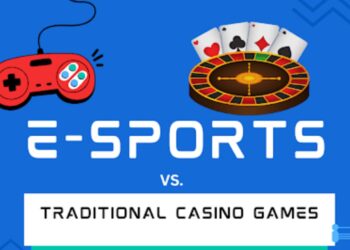Launching an online casino is not just about great games, seamless payment systems, and engaging design — it’s also about compliance. The iGaming industry is one of the most tightly regulated sectors in the world, and for good reason. Online casinos handle financial transactions, player identities, and sensitive data, making regulatory oversight essential to ensure fairness, security, and transparency. Platforms like Winbox exemplify how proper licensing, security, and user trust can define long-term success in the online gaming space.
If you’re planning to build or expand an iGaming business, understanding which global iGaming licenses are needed is the first and most important step. Each jurisdiction has its own licensing authority, compliance standards, and tax structures. Choosing the right one impacts not just your legal operations but also your reputation, accessibility, and profitability.
This guide breaks down the major iGaming licenses worldwide — what they cover, their pros and cons, and how to choose the right one for your online casino platform.
Why iGaming Licensing Matters
A valid license is your casino’s proof of legitimacy. It shows that your platform operates fairly, protects players’ data, and adheres to anti-money laundering (AML) and responsible gaming laws. Without one, your platform risks being blacklisted, losing payment partnerships, and facing severe legal penalties.
More importantly, licensed platforms attract higher player trust. Gamers today are increasingly aware of compliance markers — they look for recognizable licensing seals before depositing funds. This makes licensing not just a legal requirement, but a business necessity for credibility and growth.
When you’re developing your platform from the ground up, combining regulatory readiness with professional casino game development services ensures your technology stack and operations align perfectly with jurisdictional standards.
Key Global iGaming Licenses You Should Know
Let’s explore the most recognized iGaming licenses and what makes each one distinct.
1. Malta Gaming Authority (MGA)
The Malta Gaming Authority is one of the most respected and widely accepted regulators in the iGaming industry. MGA licensing is known for its high standards in player protection, AML compliance, and operational transparency.
- Best for: Global casino operators targeting European markets.
- Advantages: EU recognition, strong reputation, relatively moderate tax rates.
- Challenges: Longer approval timelines and detailed financial scrutiny.
Holding an MGA license gives operators a competitive edge in markets where players demand trustworthy, certified platforms.
2. UK Gambling Commission (UKGC)
The UK Gambling Commission is another gold standard in iGaming regulation. A UKGC license is mandatory for any operator serving UK players. It comes with strict guidelines on player safety, responsible gambling, and marketing transparency.
- Best for: Operators targeting the UK market.
- Advantages: High player trust, brand credibility, and regulatory prestige.
- Challenges: Intensive reporting requirements and expensive compliance costs.
While demanding, a UKGC license opens doors to one of the world’s most lucrative gambling markets.
3. Curacao eGaming License
Curacao is one of the oldest and most cost-effective licensing hubs for online casinos. Many startups choose Curacao for its relatively quick and affordable application process.
- Best for: New operators entering the global market with limited budgets.
- Advantages: Low fees, quick approval, flexible gaming categories.
- Challenges: Limited recognition in certain regions and weaker dispute resolution mechanisms.
Curacao licensing is ideal for operators who want to launch quickly and scale later to more regulated jurisdictions.
4. Gibraltar Gaming License
The Gibraltar Licensing Authority is another respected regulatory body with strong European roots. It’s particularly popular among large casino and sportsbook operators.
- Best for: Established brands seeking credibility and access to the European Economic Area (EEA).
- Advantages: Excellent tax benefits, robust regulatory reputation, and access to a skilled workforce.
- Challenges: High entry requirements and limited license availability.
Gibraltar focuses on stability and professionalism — ideal for long-term operators who value brand integrity and operational excellence.
5. Isle of Man Gambling Supervision Commission (GSC)
The Isle of Man GSC is known for its forward-thinking approach, especially towards blockchain gaming and cryptocurrency casinos.
- Best for: Operators interested in crypto gaming or blockchain integration.
- Advantages: Reputable regulatory environment, crypto-friendly policies, and flexible tax structures.
- Challenges: Higher upfront costs and detailed due diligence.
This license is growing in popularity among modern iGaming operators looking to future-proof their platforms.
6. Kahnawake Gaming Commission (Canada)
Based in Quebec, the Kahnawake Gaming Commission has been licensing online casinos since 1999. It’s well-regarded in North America and offers a balanced approach to compliance and accessibility.
- Best for: Operators targeting North American markets.
- Advantages: Reasonable licensing fees, low tax rates, and fast processing.
- Challenges: Limited global recognition compared to MGA or UKGC.
Kahnawake licensing is an affordable option for operators planning to build presence in Canada and beyond.
Factors to Consider When Choosing a License
Selecting the right license depends on several business and technical factors. Here are the key considerations:
- Target Market: Choose a license recognized in your desired player region.
- Budget and Costs: Factor in application fees, taxes, and annual renewals.
- Compliance Complexity: Some regulators require detailed documentation and regular audits.
- Reputation and Player Trust: A license from MGA or UKGC generally signals higher credibility.
- Business Model: Decide whether you’re offering slots, poker, sports betting, or live dealer games integration — since some jurisdictions require specific sub-licenses.
- Future Expansion: Consider scalability and whether the license allows global operations or is region-specific.
Choosing strategically can prevent future compliance issues and open more market opportunities as your business grows.
The Licensing Process: Step-by-Step Overview
While details differ between jurisdictions, most follow a similar framework:

- Business Formation: Register your company in the jurisdiction of the licensing authority.
- Application Submission: Provide documentation — business plans, financial statements, and background checks.
- Technical Review: Regulators assess your platform’s RNG systems, player data security, and responsible gaming tools.
- Fit and Proper Test: Key executives and shareholders undergo background and credit checks.
- Approval and Auditing: Upon approval, regular compliance reports and audits are mandatory to maintain validity.
This process ensures only legitimate, transparent businesses can operate legally in the iGaming ecosystem.
How Licensing Affects Technology and Operations
Your chosen license influences not only legal compliance but also technical architecture. For example, platforms licensed under MGA or UKGC must maintain detailed transaction logs, AML reports, and self-exclusion tools. They also require certified RNGs and secure data centers located in approved jurisdictions.
That’s why integrating compliance from the very beginning of development is crucial. When working with a professional provider offering casino game development services, you ensure that security protocols, reporting tools, and audit logs are built directly into your platform. This proactive approach reduces licensing delays and helps you meet technical certification standards faster.
The Cost of Licensing and Compliance
Costs vary widely depending on the jurisdiction. For example:
- Curacao licenses may cost between $15,000 and $25,000 annually.
- MGA or UKGC licenses can exceed $100,000, including audits and application fees.
Additionally, operators must budget for ongoing compliance costs such as third-party audits, legal counsel, and renewal fees. Although expensive, these investments are essential for maintaining operational integrity and player trust.
Final Thoughts
Securing a proper iGaming license is not just a formality — it’s the foundation of a sustainable online casino business. A valid license strengthens your brand credibility, builds trust with players, and opens access to global markets.
Whether you’re launching a startup or scaling an established platform, align your licensing choice with your business goals, market reach, and technology roadmap. Integrating regulatory readiness into your early development phase — from backend systems to live dealer games integration — will make compliance smoother and future operations more efficient.
In an industry where trust drives everything, choosing the right license means choosing long-term success. With careful planning, expert guidance, and transparent operations, your casino platform can thrive in the global iGaming landscape with confidence and compliance at its core.

























































